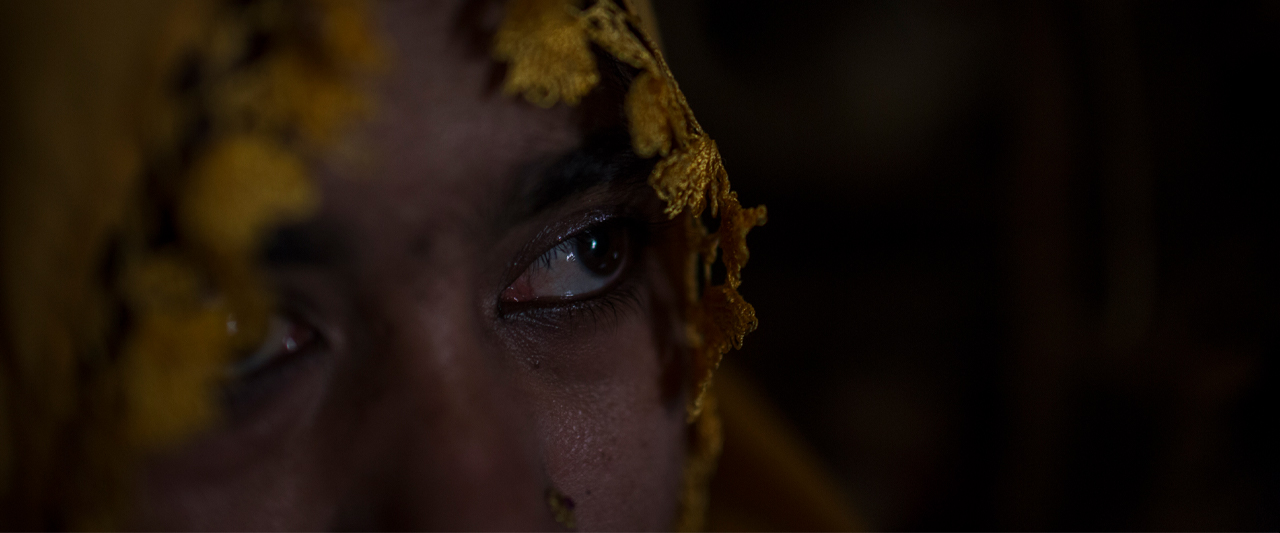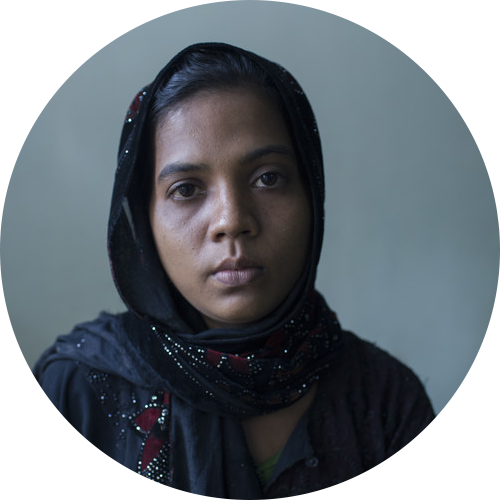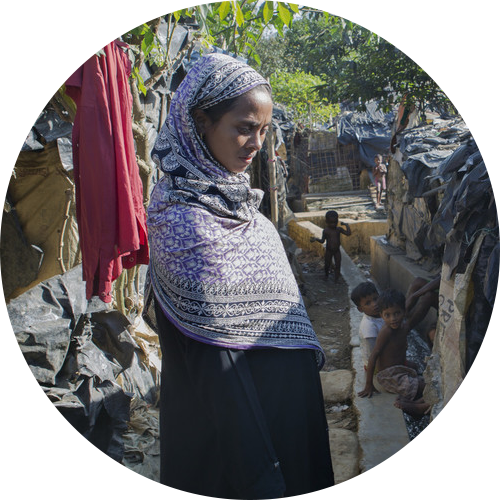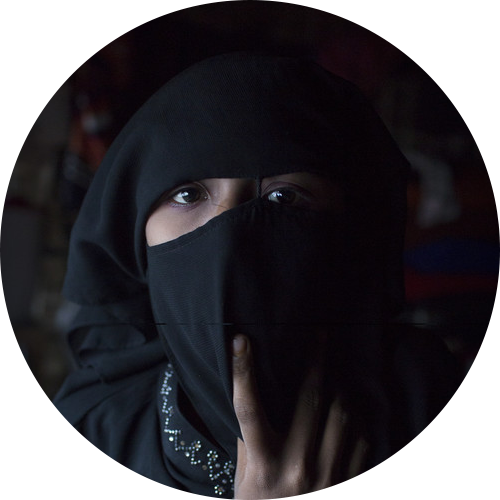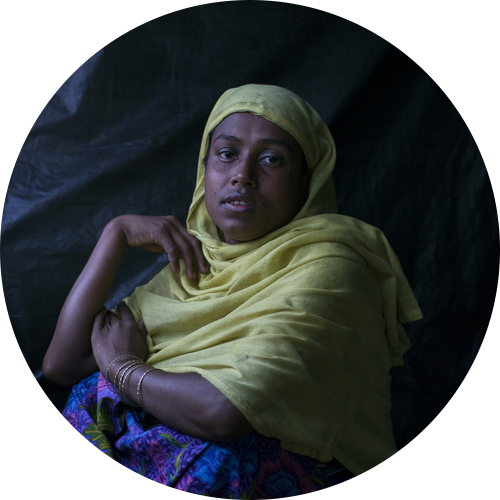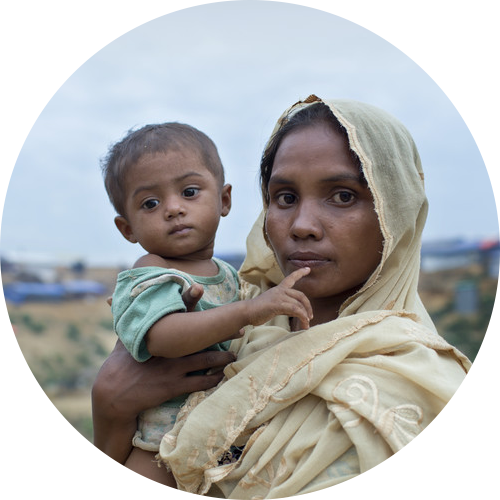In August 2017, the brutal wave of violence directed at the Rohingya community in Myanmar reached the home of Noor (a pseudonym). Her husband was at the mosque, while she stayed at home to pray. Suddenly, she heard villagers screaming and the sound of gunshots. She immediately took her son and ran from the house. Just after she fled, a rocket launcher struck her house, setting it on fire.
Everyone was running. Noor ran with her neighbors but was slowed down because of her child. Three men from the military caught her and violently raped her, in front of her son. Her son was crying loudly and a soldier threatened him with a gun. Noor managed to escape—but that day lost her husband, her father, one brother and a brother-in-law. Her son still cries for his father.
Joining hundreds of thousands of other Rohingya fleeing the violence in Myanmar, Noor made her way to Bangladesh, walking for 10 days. When she arrived at the refugee camps there, she realized that she was pregnant. She did not want to keep the child because she felt it would be a sin to bring a rapist’s child into the world. At a health facility in the camps staffed by Ipas-trained providers, she was able to terminate the pregnancy safely, receiving menstrual regulation services (as abortion is known in Bangladesh).
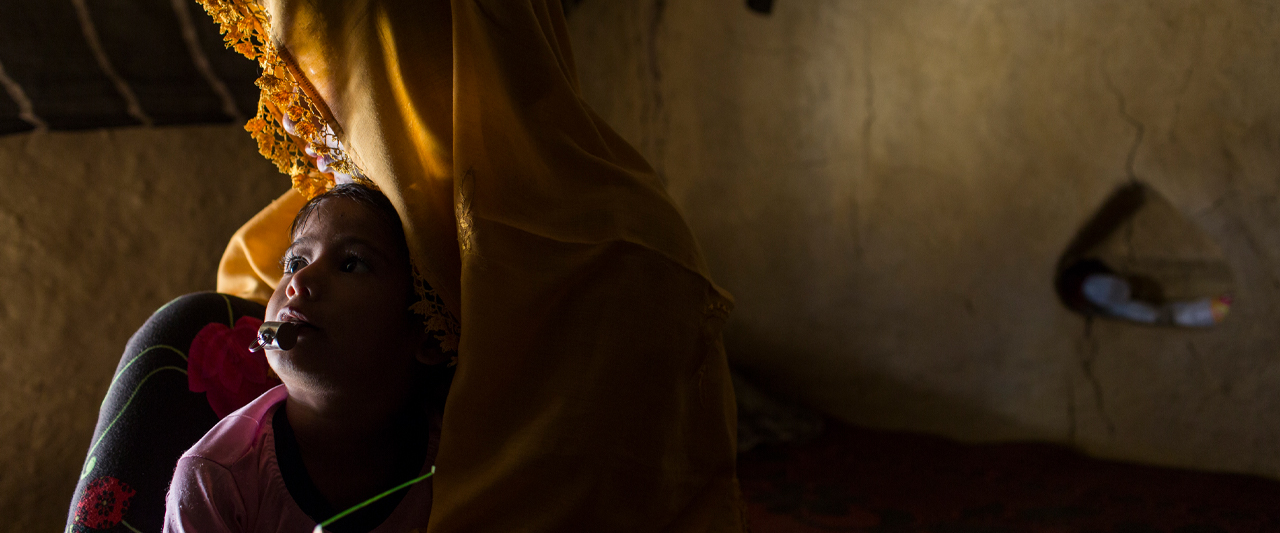
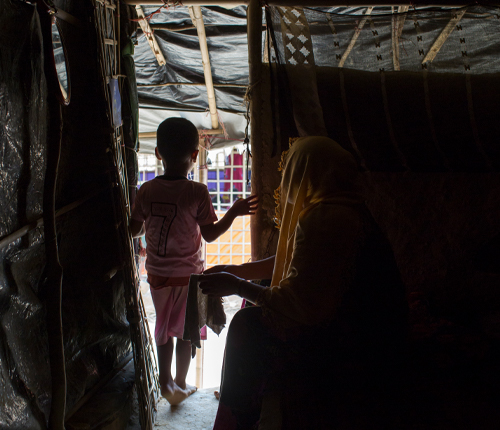

Read more about the critical need for reproductive care in the camps and how Ipas is helping.
Photographs © Farzana Hossen
For more information, contact [email protected].


